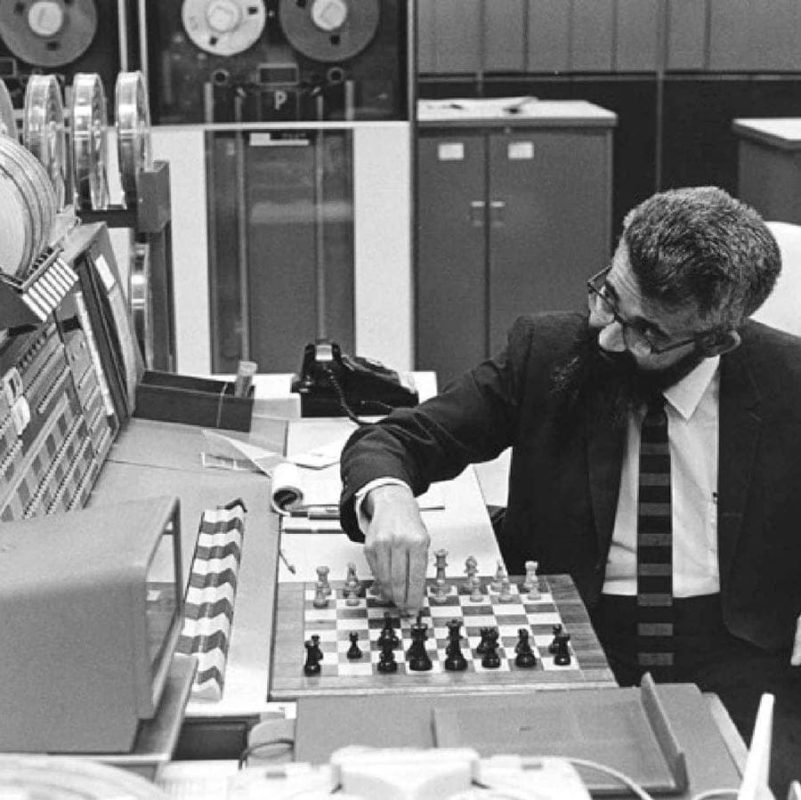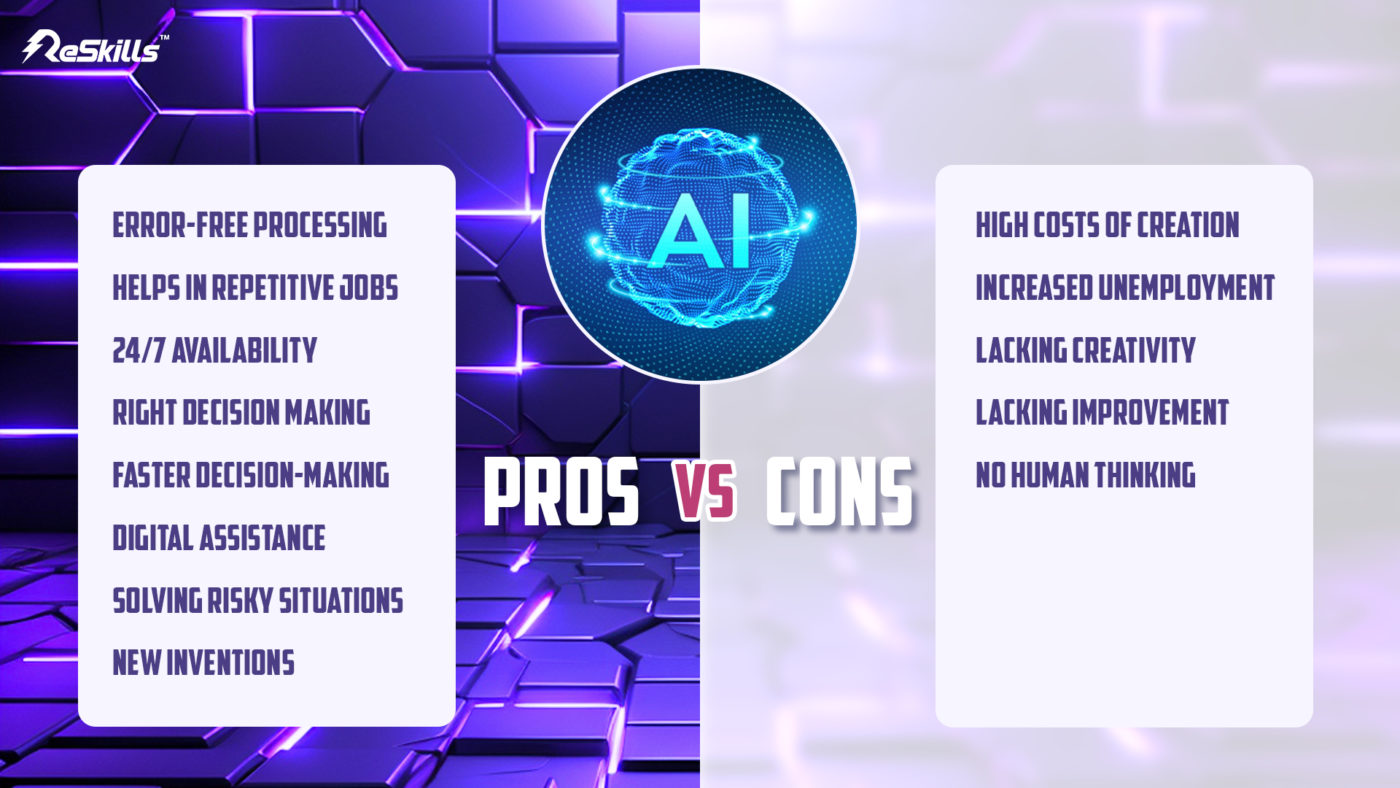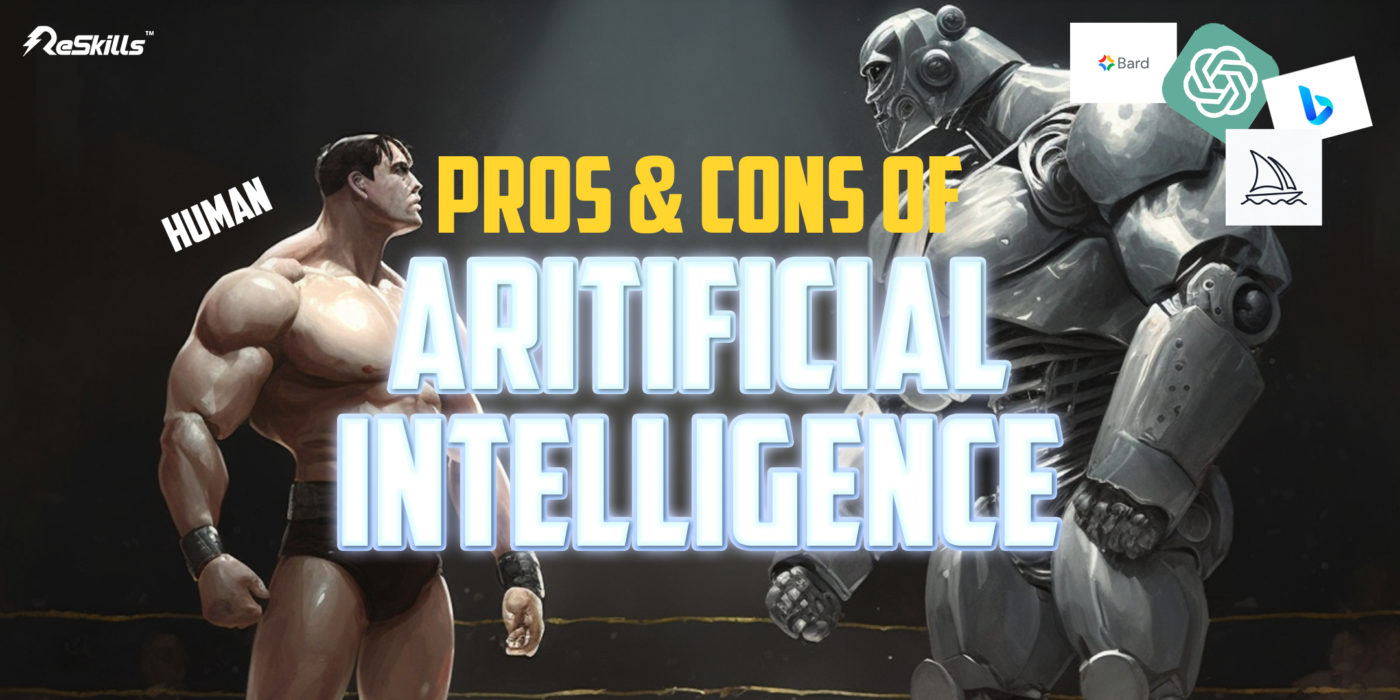AI (Artificial Intelligence) technology has brought about significant advancements across various industries, revolutionizing how tasks are performed, decisions are made, and services are delivered. However, like any transformative technology, AI has its own advantages and disadvantages. In this analysis, we will delve into the pros and cons of AI technology, shedding light on its potential benefits and the challenges that need to be addressed.
The History of Artificial Intelligence

AI technology has a rich history that dates back to the mid-20th century. The field emerged in the 1950s, intending to create machines capable of simulating human intelligence. Pioneers like John McCarthy, Marvin Minsky, Allen Newell, and Herbert A. Simon laid the groundwork for AI by developing early problem-solving and logical reasoning programs. The 1960s and 1970s saw a surge of optimism and increased funding for AI research. Symbolic AI became the focus, using symbols and logical rules to represent and manipulate knowledge.
However, this initial wave of enthusiasm was followed by an “AI winter” in the 1980s and 1990s, where progress stalled due to high expectations and limited practical results. The field experienced a resurgence in the late 1990s with advancements in machine learning and data-driven approaches. Breakthroughs like Deep Blue defeating world chess champion Garry Kasparov in 1997 and the emergence of practical speech recognition and image recognition systems revitalized interest in AI. The 21st century has witnessed significant advancements in AI technology, including the rise of neural networks, deep learning, and the development of AI applications in various domains, such as healthcare, finance, and autonomous vehicles. The history of AI is characterized by periods of excitement, setbacks, and renewed progress, with current developments holding immense potential for transforming industries and shaping the future.

Pros of AI Technology
Error-free processing
One of the primary advantages of AI technology lies in its ability to process information with exceptional accuracy. Unlike humans, AI systems can perform tasks with minimal errors, enhancing reliability and improving outcomes. This error-free processing is particularly valuable in critical domains such as healthcare, finance, and autonomous vehicles, where precision is paramount.
Helps in repetitive works
AI excels at handling repetitive tasks, often consuming significant human resources and time. By automating such tasks, AI technology allows employees to focus on more complex and creative endeavours, fostering innovation and driving productivity. This not only boosts efficiency within organizations but also empowers individuals to engage in intellectually stimulating work.
24/7 availability
Another significant advantage of AI is its 24/7 availability. AI systems do not require breaks, sleep, or rest, unlike human workers. They can operate continuously, ensuring uninterrupted services and support. This round-the-clock availability increases productivity, enhanced customer satisfaction, and improves response times in various industries.
Right decision making
AI technology has the potential to revolutionize decision-making processes. AI algorithms can provide insights and recommendations by analyzing vast amounts of data rapidly, enabling data-driven decision-making. This reduces biases and increases the chances of making the right choices in business, healthcare, or other critical fields.
Faster decision making
Speed is a defining feature of AI technology. AI systems can process information incredibly fast, enabling quicker decision-making in time-sensitive situations. This speed advantage can be particularly beneficial in emergency response systems, financial trading, or scenarios where real-time analysis is crucial.
Digital Assistance
Digital assistance is another area where AI shines. Through the development of chatbots, virtual agents, and voice assistants, AI technology provides instant and personalized support to users. These digital assistants can handle customer queries, troubleshoot problems, and streamline user experiences. By augmenting human capabilities, AI-powered digital assistance improves efficiency and customer satisfaction.
Solving risky situation
AI technology can also be deployed in situations that are too risky for humans. Whether exploring hazardous environments, diffusing bombs, or conducting deep-sea research, AI can ensure human safety. By taking on these risky tasks, AI systems mitigate potential harm to human lives.
New Inventions
AI technology serves as a catalyst for new inventions and discoveries. By leveraging machine learning and data analysis, researchers can uncover patterns, explore uncharted territories, and develop groundbreaking innovations. AI’s ability to process and interpret vast amounts of data accelerates scientific and technological advancements, leading to previously unimaginable breakthroughs.
Cons of AI Technology
High cost of creation
One of the primary concerns is the high cost of creating and implementing AI technology. Developing AI systems requires substantial research, infrastructure, and skilled personnel investment. This cost may limit access to AI technology for smaller organizations or underprivileged communities, potentially exacerbating socioeconomic inequalities.
Increase unemployment
The automation of tasks through AI technology also raises concerns about job displacement. As AI systems take over repetitive or manual tasks, there is a risk of unemployment for workers in these domains. This displacement can lead to socioeconomic challenges if not accompanied by measures to retrain and reskill affected workers or create new job opportunities.
Lacking creativity
Another limitation of AI technology is its inherent lack of creativity. While AI excels at analyzing data and performing tasks based on predefined rules, it struggles to replicate human-like creativity, imagination, and intuition. This limitation can hinder AI systems’ ability to develop novel solutions or think outside the box, often required in art, design, and innovation.
Lacking improvement
AI technology may struggle with adapting to new or unforeseen scenarios. While AI can learn from existing data and improve its performance, it may lack the flexibility and adaptability that humans possess. This limitation raises challenges in domains where quick adaptation and problem-solving in dynamic environments are essential.
No human thinking
AI systems lack the capacity for human thinking. They cannot replicate complex and nuanced human qualities such as emotional intelligence, empathy, and moral reasoning. This limitation can be critical in domains that require human interaction, such as customer service or ethical decision-making. Human judgment and ethical considerations are crucial for navigating certain situations that go beyond the capabilities of AI.
Conclusion
AI technology offers numerous benefits; however, addressing the challenges associated with AI is crucial.
By understanding and actively addressing these challenges, we can harness the power of AI while ensuring its responsible and ethical use. Striking a balance between AI’s capabilities and human expertise is essential for unlocking its full potential while mitigating the potential risks. AI should be seen as a tool to augment human capabilities and enhance our ability to solve problems, making it a powerful force for progress in various domains.



